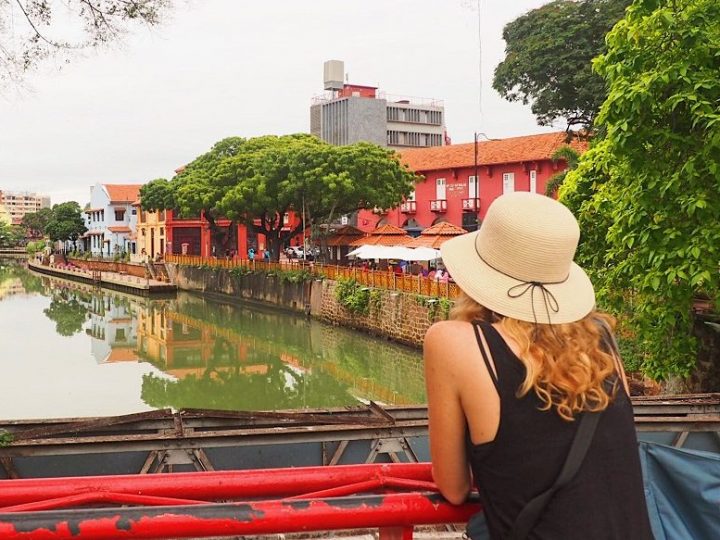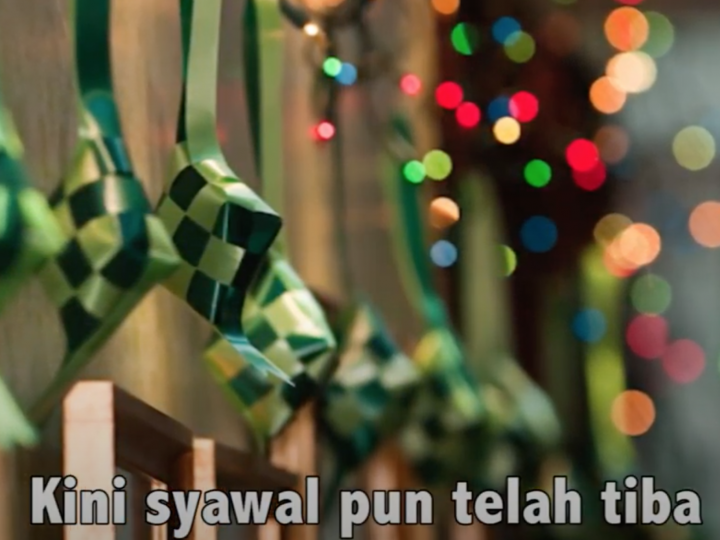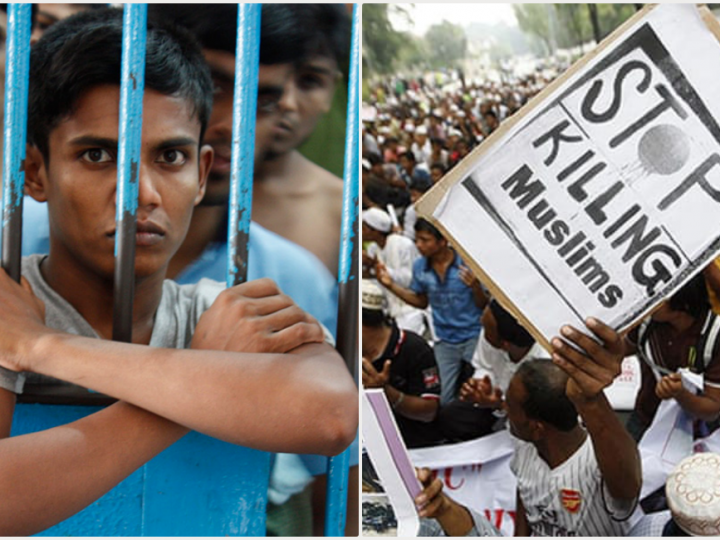Orang Asli Are Losing Their Lands to Musang King Durian Plantations… Here’s How We Can Stop It
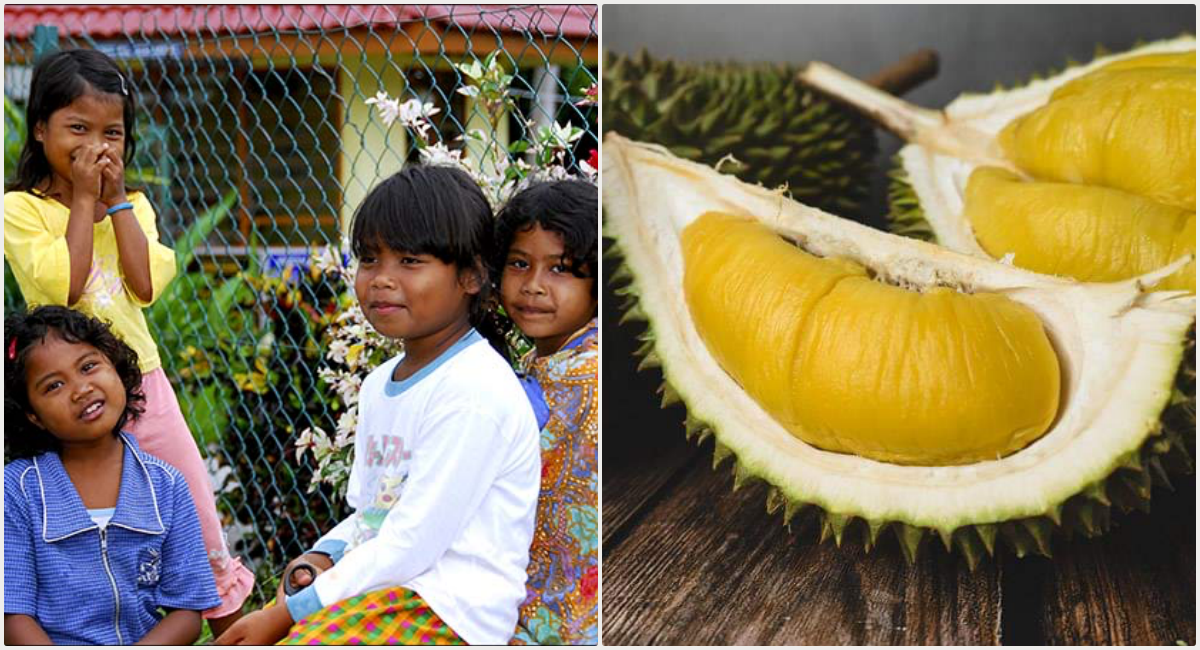 Thirsty for JUICE content? Quench your cravings on our Instagram, TikTok and WhatsApp
Thirsty for JUICE content? Quench your cravings on our Instagram, TikTok and WhatsApp
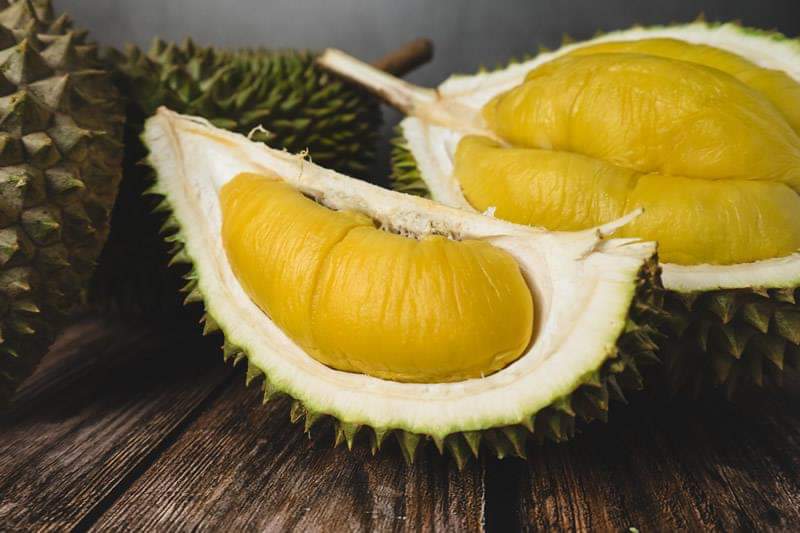
Known as the King of Fruits, the durian is definitely a staple for Malaysians.
Arguably the most popular type of durian is Musang King and it’s usually expensively priced due to its creamy texture and overall premium taste. Now, since Musang King is in season, many Malaysians even resort to getting the fruit delivered right to their doorsteps, paying extra fees just so they can get a taste of that creamy goodness.
While that’s all fine and dandy, it begs the question: Do Malaysians actually know the origins of Musang King? Better yet, do Malaysians know that the demand for Musang King is causing Orang Asli to lose their ancestral lands?
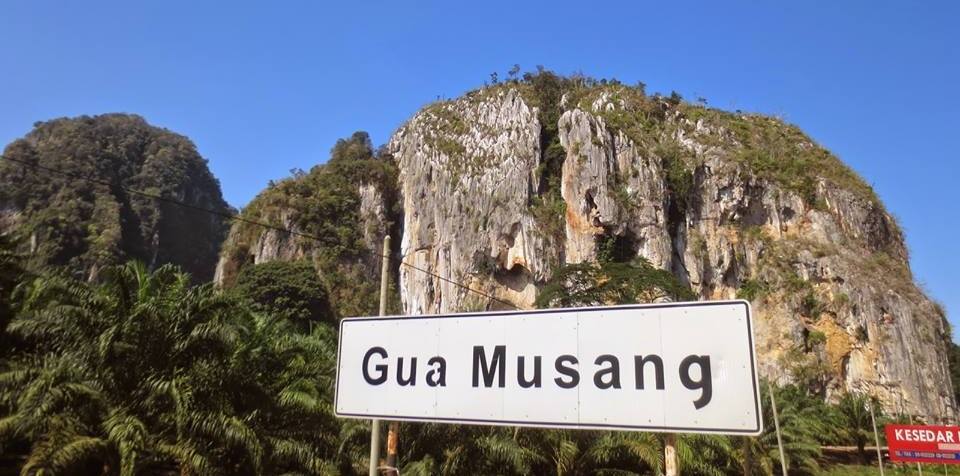
In 2018, at Gua Musang, Kelantan, the place of birth of the Musang King, Orang Asli were being physically threatened by plantation owners with bulldozers and assaulted just for protesting against the stealing of their rightful land. The developments would soon lead to more durian plantations to increase profit to match the ever growing demand for Musang King.
Known as tanah adat, Orang Asli are very protective of their ancestral lands that have been passed down through many generations.
Although they have no documents to prove ownership of the land, the Malaysian government and Orang Asli forefathers came to a verbal agreement during the formation of Malaysia – that their heritage, culture and land would be protected. So when outsiders encroach their land and threaten to take it away, they are quick to defend their rights. They started a blockade, stating that,
“That land is ours. While it’s not written into law, it was verbally agreed upon between the Malaysian government and our forefathers. We’ve been connected to it for thousands of years.”
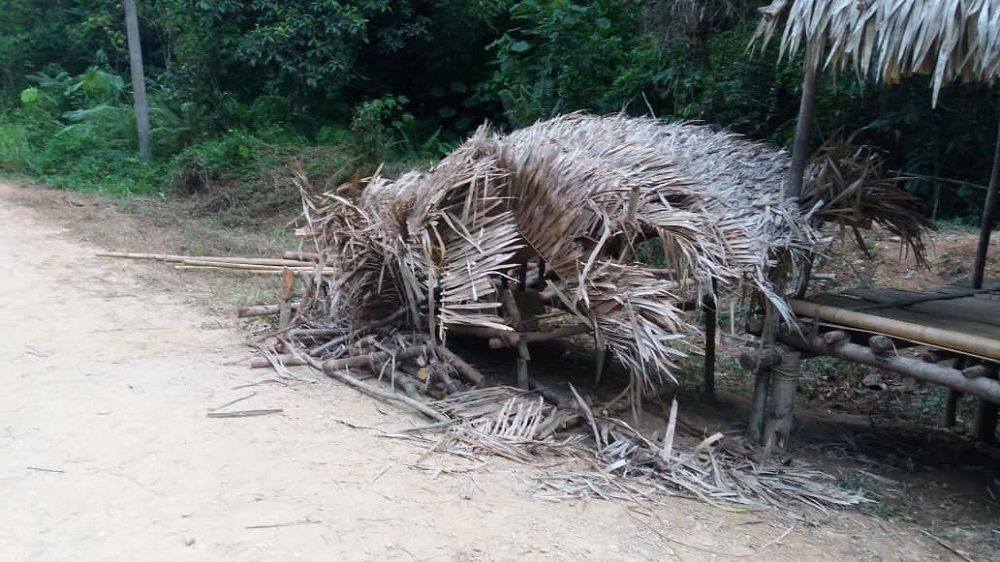
Local activist, Mustafa Along, who has been persistent in his fight against the clearing of land for durian cultivation has since been slapped with multiple lawsuits for setting up the blockades. According to Mustafa, people who were trying to document the occurrence by taking photos had their handphones promptly snatched from them. Mustafa said, “It happened too fast for us to do anything.”
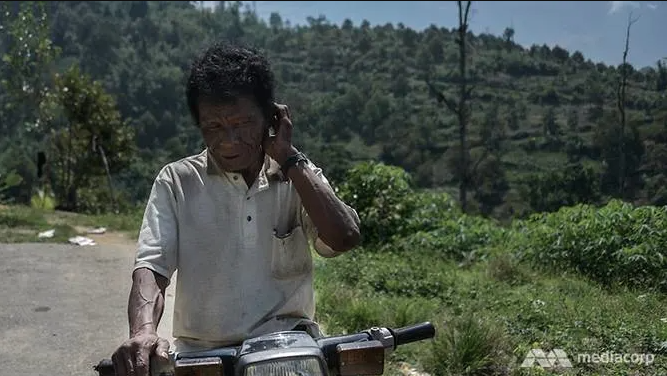
Fast forward to a year later, in 2019, Bentong, Pahang became the next target for durian plantation owners.
An Orang Asli by the name of Mr Tam recounts his experiences with the incessant sound of bulldozing that has since disturbed the peace of the community living there. He said with defeat and frustration,
“It’s not peaceful here anymore. We don’t sleep well because we are scared the fruits and property we have will be stolen.”
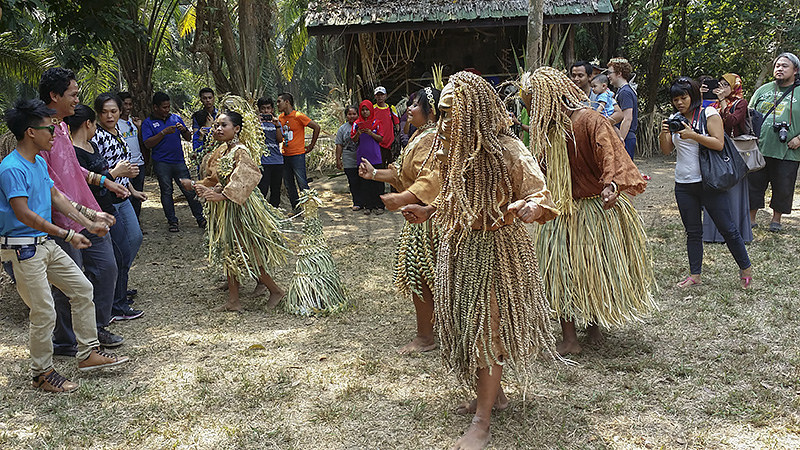
The Orang Asli inhabiting Bentong know that they are unable to chase anyone out, but they are increasingly concerned and heartbroken by the fact that most of their land has been cleared to make way for more durian plantations.
Mr Tam believes it is greed that fuels the engines of these bulldozers, stating,
“One day they will force us to move because these (plantation owners) want to make more money, I’m sure of it. We don’t want to move. We have lived here in the forest all our lives.”
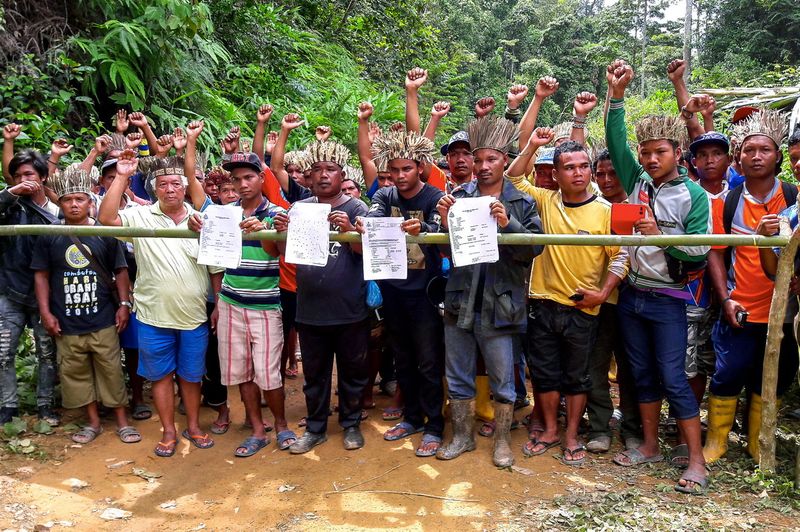
These frustrations are not felt by the Orang Asli alone. Many activists have stepped up to offer support and help during these trying times, but it is difficult to challenge large corporations who have their eyes set on making profit. Sophine Tann told CNA,
“The durian industry is all about cash right now. Plantation owners want to grow durians, so (when) they propose (expansion) to the state government and Pahang Forestry Department, they get approval quickly. This is the kind of attitude that will threaten the rights of the Orang Asli to live in their home.”
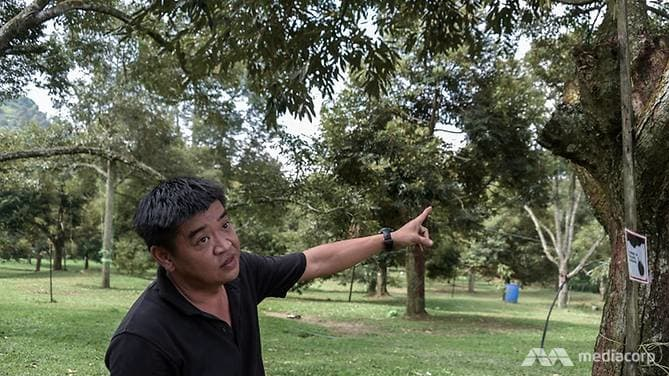
While there are numerous retellings of the same story of robbery towards the rightful land of the Orang Asli, many plantation owners are adamant that they are not hurting the Orang Asli, but helping them instead. Jovi Kong said,
“Actually, you can’t say that the Musang King plantations have negatively impacted the Orang Asli. They bring employment and help them earn money.”
Lu Yuee Thing, another plantation owner, also added to the narrative by saying,
“The question (that we are stealing Orang Asli land) is usually fielded by foreigners who are trying to spoil Malaysia’s image.”
Despite that statement, in 2018, many lawyers and activists have lobbied for these plantation owners to prove that they employ Orang Asli to harvest their durian. The case was brought to court when the blockade, that almost led to multiple injuries, happened in Kelantan.

JUICE spoke with Center for Orang Asli Concerns (COAC) to find out more about the tribulations faced by the Orang Asli relating to Musang King. COAC is an NGO that has been recognised by the UN when it won the award for ‘Best Organisation of the Year’ in 2011. Since then, they have been active in facilitating initiatives for the development and rights of the Orang Asli.
In the interview with Colin from COAC, he disclosed that there have been a total of approximately 7 won cases out of 9 that have gone to court. Despite that, the wins are a short-term triumph because the government still refuses to recognise these lands as ancestral lands belonging to the Orang Asli.
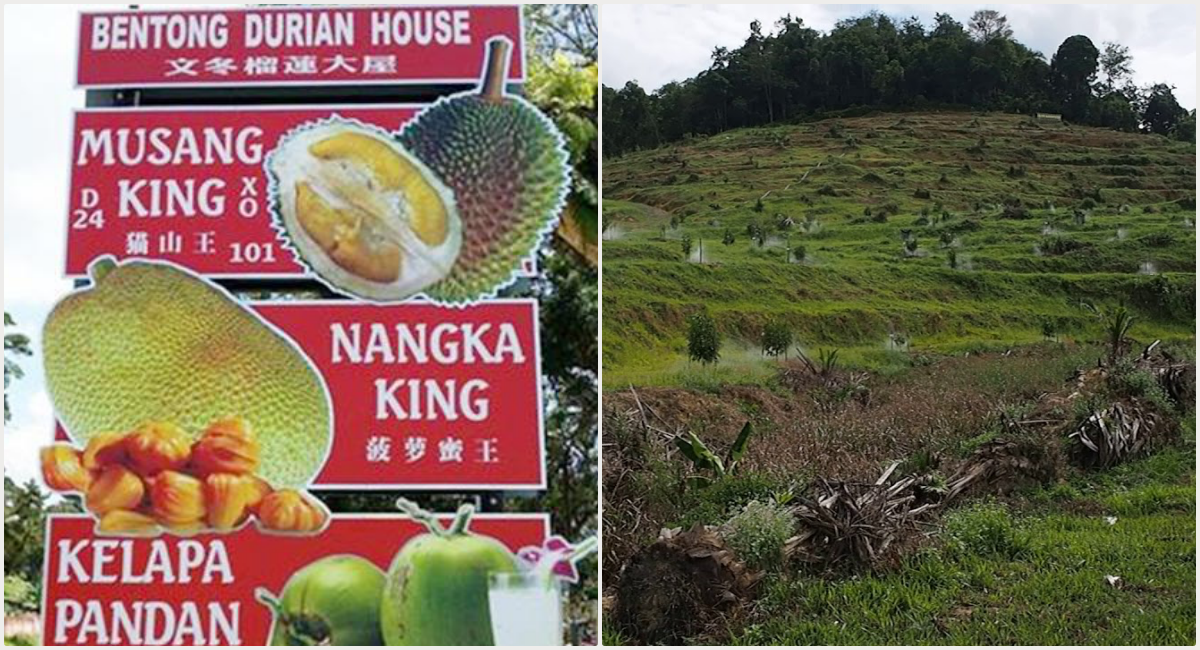
As eloquently summarised by Mr Tam, money is the driving factor and most of these corporations are utilising the lands not just for Musang King plantations.
According to Colin, companies are purchasing the lands under the guise of wanting to develop it as a durian plantation due to the growth of Musang King demand, but the truth is, the land is a major investment for the future.
By stamping their mark on these ancestral lands beforehand, the price is much cheaper than if they were to do so in the future should there be any plans for commercial development. That is why there is a significant increase in bulldozing and logging to clear out these lands for their use.
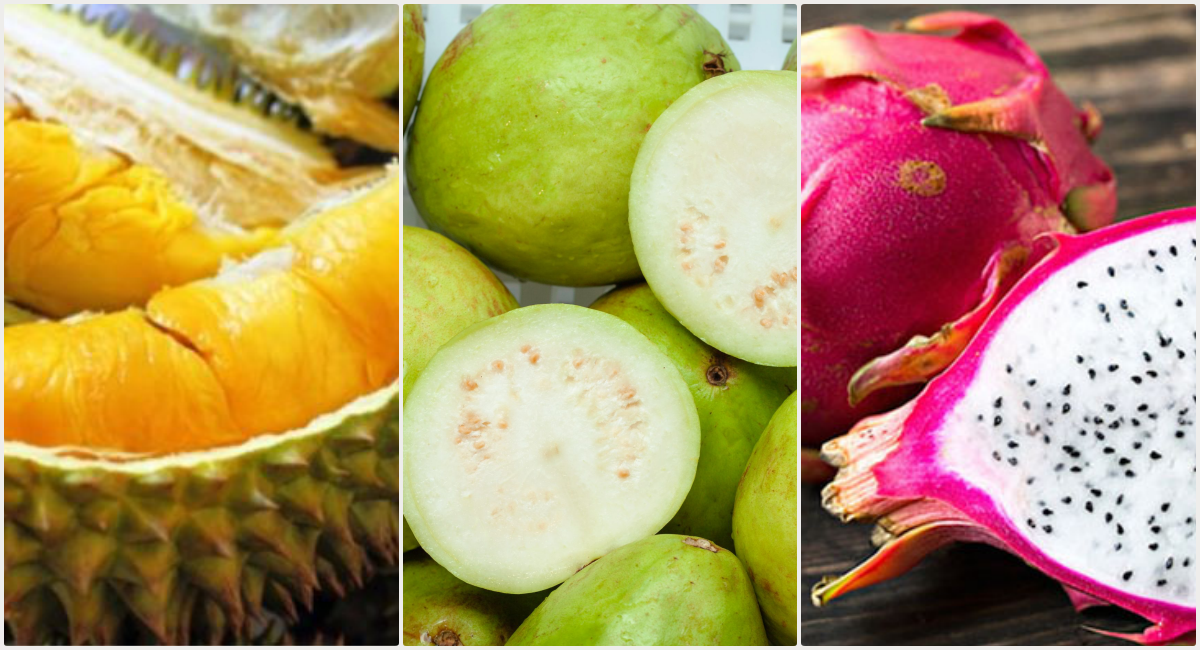
Musang King, similar to Jambu Batu and Dragonfruit, will reach its pinnacle and then suffer from a decline in sales when the market is saturated with demand. Like all things popular, it will sooner or later lose its appeal which is why corporations are maximising their profit now before that eventually happens.
Until then, COAC recommends several steps that can help the Orang Asli regain their rights to their land and be recognised on a national level, which will consequently stop encroachment.
These steps include:
1. Gathering the support of NGOs and pro-bono lawyers
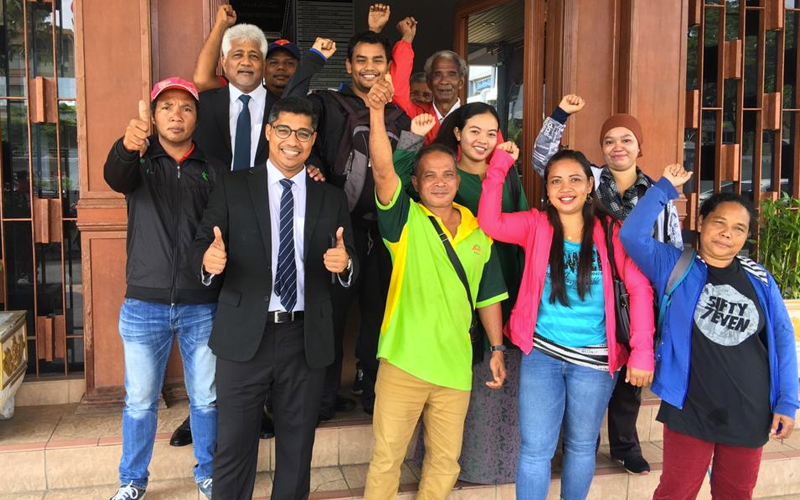
The Orang Asli can only do so much in terms of fighting for their rights. As illustrated before, protests and barricades can be stopped and knocked-down by those in power and most Orang Asli do not have the means to pay lawyers and go to court. This is where NGOs and pro-bono lawyers step in.
As proven by the 7 won cases throughout the years, change is being made and lands are being handed back to their rightful owners. However, to go to court is very expensive and tedious. It takes years for a case to be settled which is why help from the public is greatly appreciated.
There are some organisations that are accepting donations and they can be found here.
2. Vote for the right people
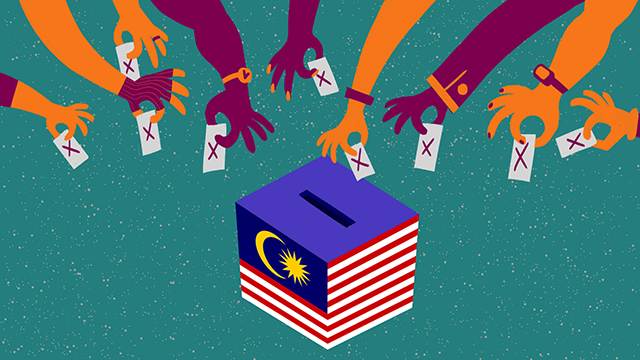
Elections are integral to the fate of the Orang Asli. According to COAC, voting for the right people in government will catalyse a massive change in the way we view indigenous people and their plight. With officials who understand the importance of preserving ancestral land, these forests will remain intact and not be exploited into shopping malls or any other unneeded commercial developments.
However, if the nation fails to elect the right people in government, many of the successes of the Orang Asli will be withdrawn since these cases are not considered precedent in court. Whenever an issue arises, despite it being trialed before, lawyers will have to start from scratch which is why it takes years to settle just one case.
This is why being more politically conscientious is important so everyone will get a chance to voice out their problems and have them be taken seriously by those at the top.
Other than the two mentioned by COAC, there is one other way you can help the Orang Asli…
3. Participate in volunteer work
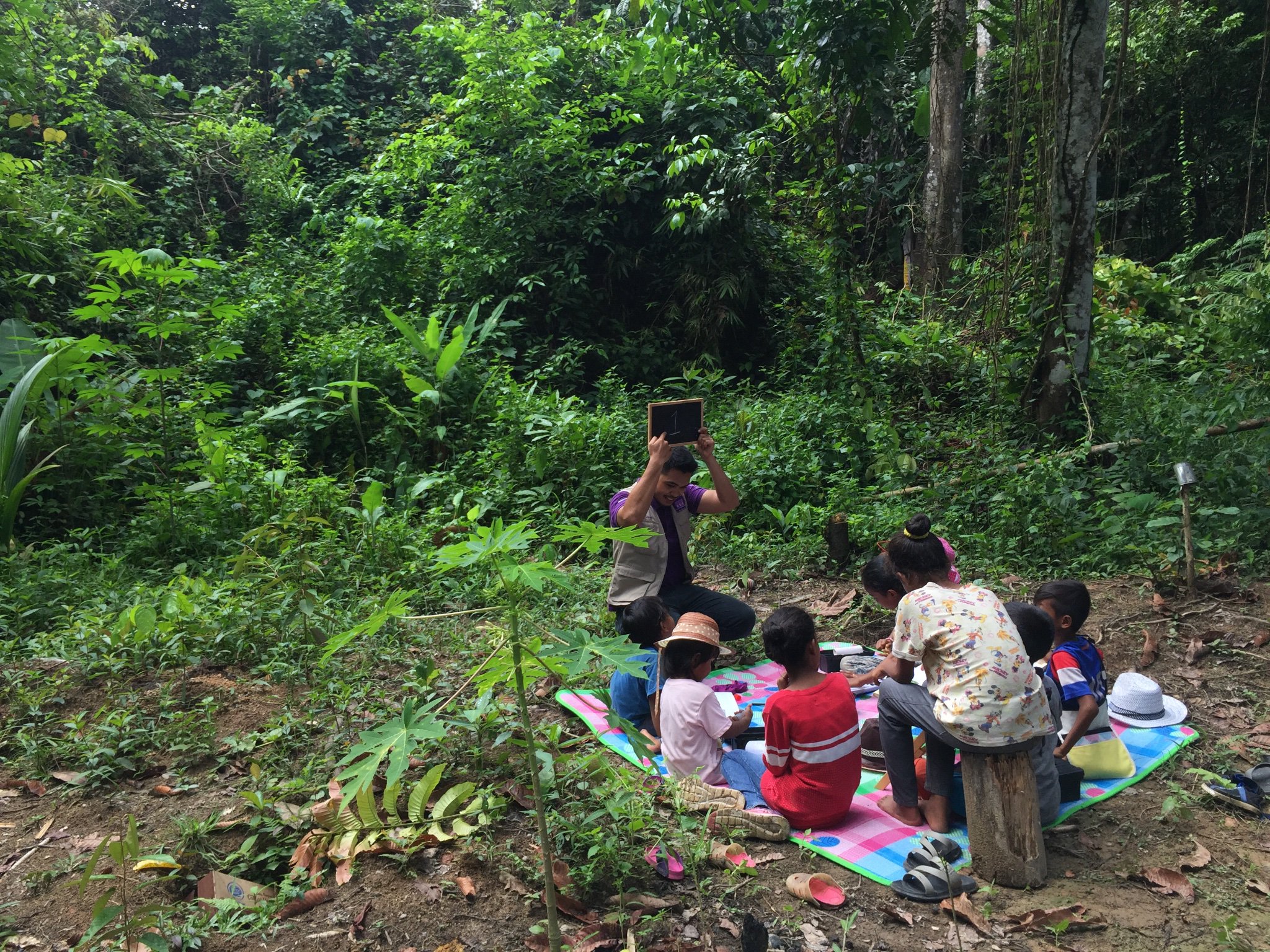
For those who are more hands-on in their approach towards helping a cause, volunteer work is one of the most virtuous and effective ways one can contribute their time and resources. Thankfully, there are many organisations to choose from, each providing different methods of helping the Orang Asli community.
From donating funds and food to Orang Asli communities to utilising knowledge and academics to educate at Orang Asli schools, there is no shortage of ways you can volunteer and be a part of improving these impoverished communities.
Here is a list of organisations I have found that do incredible work:
- Celik Volunteer Club
- HATI – Orang Asli
- Global Peace Foundation Malaysia
- Suka Society
- Small Changes MY
- Kelas Kaseh
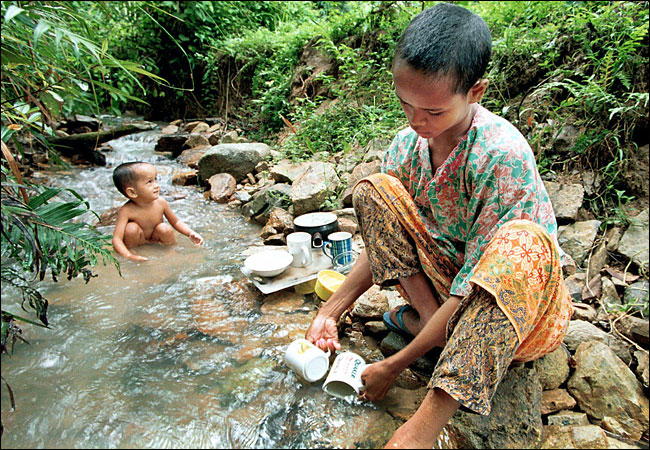
The truth is, Orang Asli have been poorly treated by Malaysians for years. This recent debacle pertaining to Musang King and thievery of their land is only the tip of the iceberg when it comes to injustices that the Orang Asli have faced.
Here are a few of the other instances where Orang Asli have been marginalised by our community:
1. Converted to Islam & Christianity without their consent
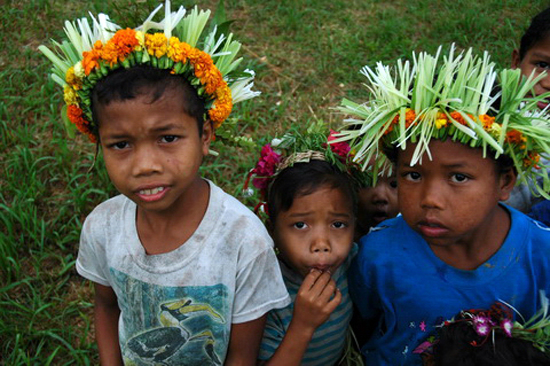
In 2019, religious authorities attempted to steal the identity and faith away from the Orang Asli by demanding them to convert to Islam and Christianity.
Children in schools were being preached Islamic and Christian teachings without their parents’ consent. Adding salt to injury, their religion was changed on their identification cards without their knowledge and despite them not practicing those religions at all.
2. Forced to take birth control injections
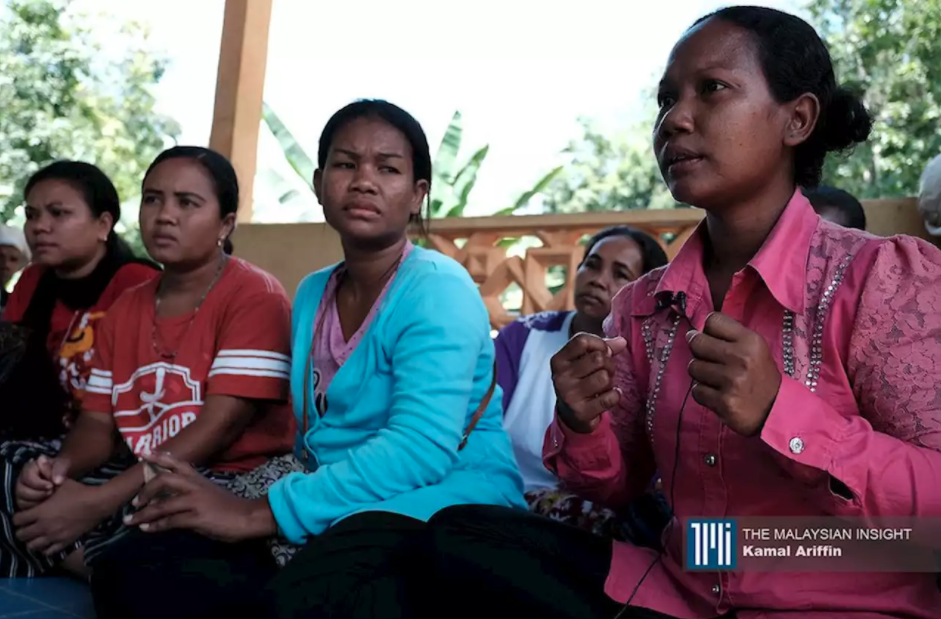
In addition to that, it was shocking for Malaysians to learn about Uyghur women being forced to take birth control in China, but the same thing has been happening on our soil towards the Orang Asli.
Women from the Temiar ethnic tribe in Hulu Perak have been injected with birth control shots for child planning initiatives. These shots caused most of these women to have irregular periods and suffer from serious pain, both short- and long-term. Some women continue to have babies, but their newborns are often born with disabilities.
3. Mocked by Malaysians through the use of slurs
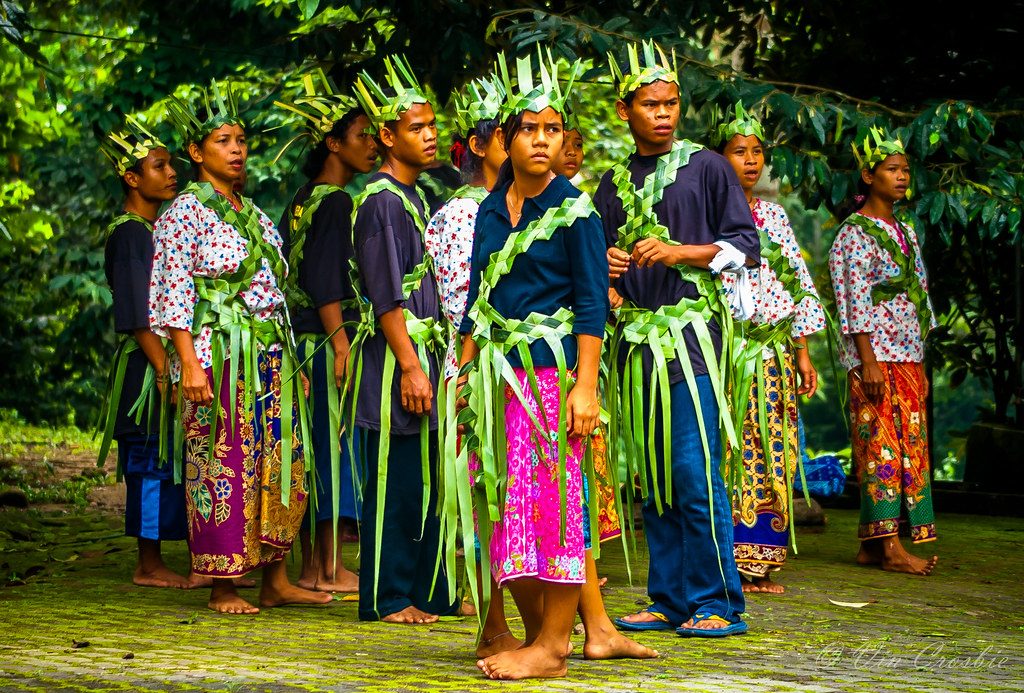
However, it’s not just the large corporations and plantation owners who are marginalising the Orang Asli, it’s the Malaysian society as well. Nowadays, most of Malaysians like to decry racism despite its prevalence, especially on social media. With that, it’s not surprising that the majority are still ignorant to certain slurs that have been popularised as colloquial slang notwithstanding its offensiveness to Orang Asli tribes.
Slurs like ‘Jakun’ and ‘Sakai’, which are actual names of Orang Asli tribes, are synonymous to ‘Over-excited’ and ‘Jerk’ respectively. A study has since proven that these terms are derogatory to Orang Asli, yet some are still reluctant to erase the words from their everyday vernacular.
For further illustration, imagine if most Malaysians substituted your race for a bad trait and that they did so without any embarrassment or fear. As an example, if someone openly called you lazy but instead they said, “Hey, why you so <insert race> ah?” wouldn’t it make you angry, and rightfully so? That’s the way it is for the Jakun and Sakai tribes.
View this post on Instagram
In short, the Orang Asli have been marginalised in Malaysia for years and we have appropriated their culture and resources without giving them any credit. Despite being the protectors of our forests, there is still a lack of respect towards these indigenous groups who are working arduously to preserve the beauty of our country as well as its resources.
With the pervasiveness of organisations such as COAC, we hope more Malaysians will be aware of how we treat the Orang Asli so we can stop the oppression and marginalisation.
To read more about Orang Asli and their struggles, click here.
To read more about more things that matter, choose JUICE.


 Get Audio+
Get Audio+ Hot FM
Hot FM Kool 101
Kool 101 Eight FM
Eight FM Fly FM
Fly FM Molek FM
Molek FM